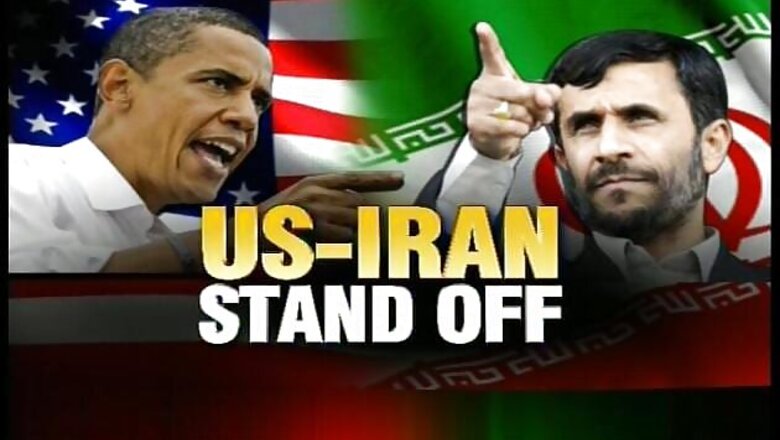
views
Washington: US-Iran ties hit a new low on Monday as the Obama administration ordered blocking of Iranian government properties and financial institutions in America. Obama said that additional sanctions are needed due to the "deceptive practices" by Iran's banks including the Central Bank to conceal transactions. The US has accused Iran of pursuing a nuclear weapons programme against stiff world opposition.
Meanwhile, US banks have been given new powers to freeze assets linked to the government.
Obama's move, in an executive order he signed on Sunday, was the latest action in an escalating campaign to target the Central Bank of Iran, and was intended to close loopholes in existing sanctions Tehran has exploited.
In a letter to Congress, Obama said Iranian banks were hiding transactions to undercut the financial sanctions the United States and other powers have imposed in response to Iran's nuclear programme.
"I have determined that additional sanctions are warranted, particularly in light of the deceptive practices of the Central Bank of Iran and other Iranian banks to conceal transactions of sanctioned parties," Obama said in the letter.
He said the expanded powers - including powers for foreign branches of American banks - were necessary because of "deficiencies in Iran's anti-money laundering regime" and "the continuing and unacceptable risk posed to the international financial system by Iran's activities."
Previously, US banks were required to reject, rather than block and freeze, Iranian transactions. Obama's executive order requires American institutions to seize Iranian state assets they encounter instead of just turning them back.
The total value of Iranian assets that would be affected by Obama's new order was not immediately clear.
Obama has been tightening sanctions on Iran to reduce the government's access to capital and oil revenues, seeking to draw the Islamic Republic back to the negotiating table to discuss a diplomatic resolution to its nuclear standoff with the West.
Tehran says its nuclear programme is meant to develop energy, not weapons.
Heightened concerns:
But its recent shift of uranium enrichment to a mountain bunker and refusal to negotiate guarantees that the program is peaceful have raised fears about Iran's ambitions and also stoked concerns about Gulf oil supplies.
Obama, who is up for re-election in November, has been criticized on the campaign trail for not being firm enough with Iran. Mitt Romney, the front-runner in the Republican race to oppose him on November 6, has accused the Democrat of relying on a "pretty please" approach to nuclear diplomacy.
The expanded financial sanctions announced on Monday add to sweeping measures Obama signed into law in late December which target Iran's central bank and foreign institutions doing business with it.
"These actions underscore the administration's resolve to hold the Iranian regime accountable for its failure to meet its international obligations," the US Treasury Department said in a statement.
The new round of sanctions could have an impact on a lawsuit by survivors of the 1983 bombing of a US Marine barracks in Beirut and victims' families who have been trying to seize $1.75 billion in Iran's money that is frozen at a Citibank branch in New York.
They have argued the money should be used to satisfy a $2.65 billion judgment against Iran for its alleged role in that attack. Iran has said the funds are central bank currency reserves, and thus protected from seizure under US law.
A US judge in 2008 ordered the money frozen and the litigation has been pending.
With additional information from Reuters



















Comments
0 comment